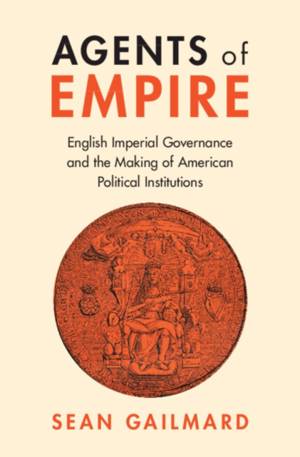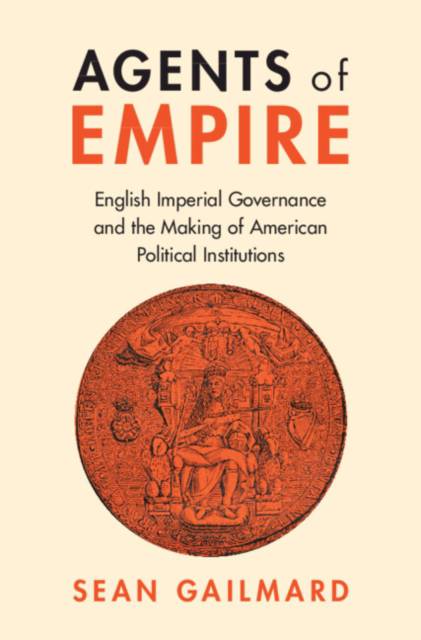
- Afhalen na 1 uur in een winkel met voorraad
- Gratis thuislevering in België vanaf € 30
- Ruim aanbod met 7 miljoen producten
- Afhalen na 1 uur in een winkel met voorraad
- Gratis thuislevering in België vanaf € 30
- Ruim aanbod met 7 miljoen producten
Zoeken
Agents of Empire
English Imperial Governance and the Making of American Political Institutions
Sean Gailmard
€ 144,45
+ 288 punten
Uitvoering
Omschrijving
To understand the foundations of American political institutions, it's necessary to understand the rationale for British colonial institutions that survived the empire. Political institutions in England's American colonies were neither direct imports from England, nor home-grown creations of autonomous colonists. Instead, they emerged from efforts of the English Crown to assert control over their colonies amid limited English state and military capacity. Agents of Empire explores the strategic dilemmas facing a constrained crown in its attempts to assert control. The study argues that colonial institutions emerged from the crown's management of authority delegated to agents-first companies and proprietors establishing colonies; then imperial officials governing the polities they created. The institutions remaining from these strategic dynamics form the building blocks of federalism, legislative power, separation of powers, judicial review, and other institutions that comprise the American polity today.
Specificaties
Betrokkenen
- Auteur(s):
- Uitgeverij:
Inhoud
- Aantal bladzijden:
- 336
- Taal:
- Engels
- Reeks:
Eigenschappen
- Productcode (EAN):
- 9781009316897
- Verschijningsdatum:
- 2/05/2024
- Uitvoering:
- Hardcover
- Formaat:
- Genaaid
- Afmetingen:
- 152 mm x 229 mm
- Gewicht:
- 616 g

Alleen bij Standaard Boekhandel
+ 288 punten op je klantenkaart van Standaard Boekhandel
Beoordelingen
We publiceren alleen reviews die voldoen aan de voorwaarden voor reviews. Bekijk onze voorwaarden voor reviews.











